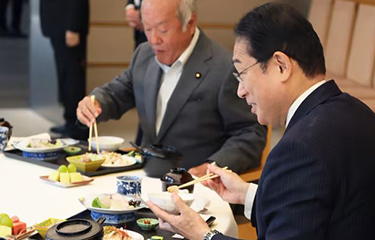Chinese, South Korean seafood sellers stress food safety after Fukushima release

Japan’s seafood exports to China, which crashed by nearly 25 percent in July – representing the first decrease in more than two years – will likely continue to plummet after Japan’s government made the controversial decision to release treated wastewater from the damaged Fukushima Daiichi nuclear plant.
In response, on 24 August, China implemented a ban on all Japanese seafood imports after the water release, severing – for now – a trade relationship that was already souring.
Following the ban, China notified the World Trade Organization on 31 August of the emergency measures it instituted in response to the Fukushima release. Japan then responded on 4 September, “strongly urging” China to immediately repeal its ban and requesting talks with China in accordance with the Regional Comprehensive Economic Partnership (RCEP) Agreement, to which both countries are parties.
“Japan hopes that China will hold discussions with the Japanese side as soon as practicable and review its measures in accordance with its obligations of the RCEP Agreement,” Japan’s response stated. “Through various efforts including these discussions, Japan will continue to strongly urge the Chinese side to immediately repeal its measures.”
The issue has prompted geopolitical responses, with U.S. Ambassador to Japan Rahm Emmanuel calling out “China’s baseless political and economic actions against Japan over the release of treated wastewater from the nuclear plant,” in an op-ed.
On 31 August, Emmanuel visited a seafood market in Soma, Japan, and publicly ate local seafood with the town’s mayor, according to the Associated Press.
“The trip has now taken on the additional purpose of standing shoulder-to-shoulder with Japan to confront Beijing's latest acts of economic coercion,” he said.
Regardless of efforts like Emmanuel’s, other seafood markets have also turned away from Japanese exports, with retail prices plummeting 40 to 50 percent in August year over year, according to The Asahi Shimbun.
Hong Kong’s Japanese seafood imports fell 11 percent in July and are likely to similarly crater as a result of the city’s own ban on Japanese imports, which it also implemented on 24 August, according to Kyodo News.
The reaction of consumers in China and Hong Kong has differed, though, Jack Yuan, the chief executive of seafood importing company Whatfresh, which has offices in Guangzhou and Hong Kong said.
“Whereas Hong Kong consumers are guided by and trust in the local food safety authorities, the same trust is absent in mainland consumers who have decided to consume less seafood,” Yuan said.
Despite public fears over the release, seafood sales in South Korea actually ...
Photo courtesy of Japan Cabinet Public Affairs Office





Share